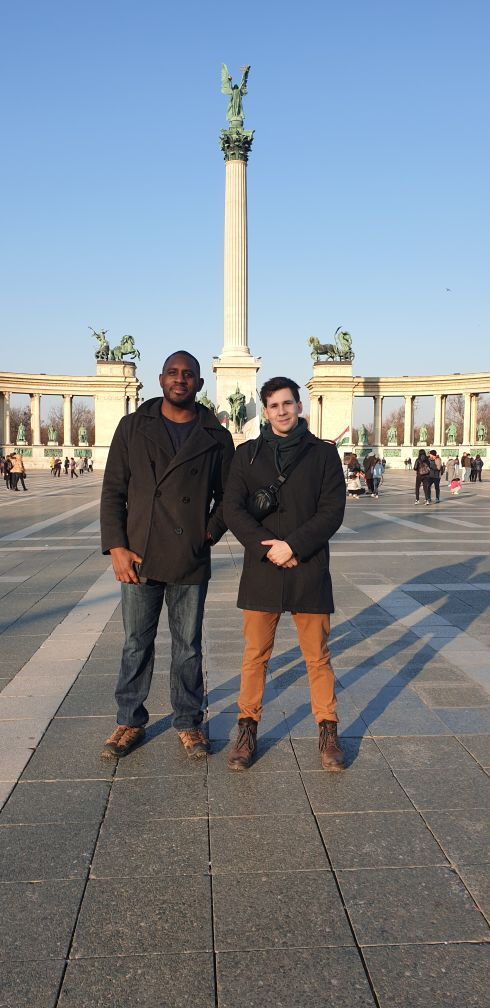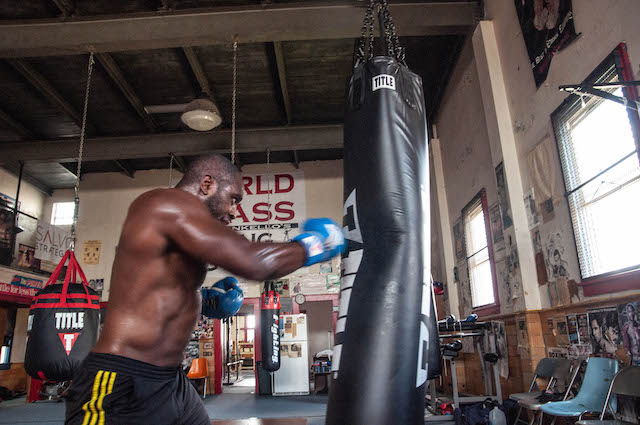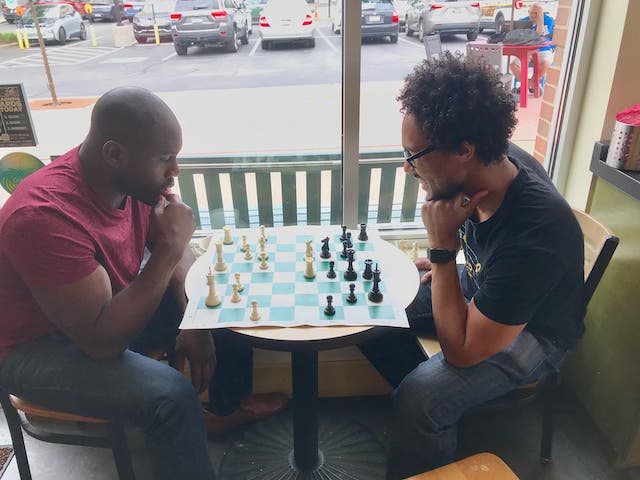Haters gonna hate.
Words so true they should be in the bible.
Regardless of whether the hate is real or imagined, rejection hurts. In fact, your brain releases the same self-soothing hormones it does when you break a leg.1
The truth is, humans have an innate need to feel admired, loved, and as though we belong.
So when someone doesn’t like you for seemingly no reason at all, it can feel like a slap in the face.
Especially when you’re young.
I’ve already written a piece on why you have haters. So I won’t rehash that here. Instead, I’ll help you figure out what to do if you’re currently stuck in this situation.
What to do when someone doesn’t like you for no reason
In reality, there’s always a reason someone doesn’t like you. Though, it may not be readily apparent to you. And the reason they dislike you may or may not actually have anything to do with you.
Either way, it can lead to these problems:
- A ruined reputation at work or at school
- The culprit trying to get other people to dislike you
- Situations that are unnecessarily uncomfortable
Sometimes secret haters are people you don’t know. Other times it’s friends and family that ghost you. The seven tips below will help you figure out what to do in your unique situation. Practice all or most of them and remember building resilience and confidence takes time.
Don’t make assumptions
If you’ve ever read The Four Agreements by Don Miguel Ruiz, you know that one of the principles is don’t make assumptions.
Assumptions lead you to act in a way that’s incongruent with reality.
When someone dislikes you, it’s easy to go into a negative spiral. But the words everyone hates me are right next to _nobody likes me _in the overreacting dictionary.
Unless you’re a rather bad person. That’s simply not possible. Even terrible people have friends.
The reasons people don’t get along are as spontaneous as they are varied. It could be completely based on a misunderstanding.
Practice empathy, put yourself in their shoes, and consider if you did something that’s actually offensive and, if not, move on.
Ask yourself what’s true about the situation. Did something actually happen or is it your insecurity? Can what happened be solved with a conversation or apology?
Low self-esteem can lead you to overreact or assume untrue things about what other people think. And assuming what others think is the fastest way to _ruin _your self-esteem.
Practice self-awareness
It’s possible that you could be rubbing several people the wrong way based on something you don’t think is strange at all.
Body language plays the starring role in non-verbal communication. Missing things like social cues may have people avoiding you without you knowing why.
I’d even go as far as to say, without self-awareness, you’re going to have a hard time making new friends. Conscious awareness helps with life, work, making decisions, and is necessary for self-improvement.
Luckily, ‘waking up’ to a higher EQ is a gradual process you improve on overtime with self-evaluation.
As you develop a stronger sense of self you start to pick up on other people’s comfort zones. If you stand too close, you take a step back. If you speak too loudly, you measure your tone. If you are constantly talking about yourself, you begin to ask about other people.
The Four Confidences is a little guide that’s big on advice for building confidence
This is a short book that answers the burning question of our time: “How do I build confidence?”
The Four Confidences is based on cold, hard experiences. Not theory. The same way I got confidence in my athletic, academic, and social abilities is what I share here. When I wasn’t confident enough to stay sober, I relied on these techniques to help me stop drinking.
Download the Free GuideFocus on self-improvement
Count it like clockwork. When you start to improve yourself, you will attract jealous people and outright haters.
No one is immune to feeling a little jealousy at least once in their lives. When you face it and learn from it, you can see when others are in a similar situation. Through meta-cognition (thinking about your thoughts) you begin to self-evaluate. Done correctly, i.e. learning new skills and overcoming challenges, you become a better person.
Then you’re able to see others’ jealousy in an objective light.
No, it won’t always feel good, especially in situations when the hater is someone in a position of power. Or someone you can’t separate from like a family member. But you can become a person that lets other people’s feelings roll off your shoulders.
As a boxer, I had to learn to face opponents that literally wanted to bash my face in and not be intimidated by it. I don’t expect you to have world-class physical training but exercise or a physical hobby will help. It gets you out of your mind and into your body.
Don’t own others’ feelings
If you’re in a relationship long enough, whether it’s a spouse, friend, or family member, you become familiar with their emotional cycles and frustrations.
The benefit of being close friends is that you know they’ll come around. You can even ignore it. You don’t always have the luxury to ignore someone that dislikes you, but just like with a close friend, you don’t have to own their emotions.
Try this when others start to project their emotions or feelings on you:
- Focus on your breathing
- Notice the physical sensations in your body
Methods like these help you refocus your own energy and not absorb the energy that’s coming in your direction. People might not like you, but it’s no reason to not like yourself. Constantly giving up your emotional wellness to someone else transforms you into a victim.
Ask why it matters that they like you.
Observe others objectively and recognize some people are going to be upset no matter what.
Let it go and move on.
Face conflict head-on
Social media has created a new type of fake thug. It puts you in a passive state to judge everything you see. And that empowers people to covertly hate when they have no real reason to.
Sometimes it’s worth it to confront the unsurfaced conflict. Especially among co-workers, employees, or team members.
Calling it out lets the air out of their balloon and forces them to own their own feelings. If you go this route, don’t accuse.
The protective mechanism of human nature leads people to defend themselves to the death even if there is clear evidence they did something wrong. This is a self-serving bias we all carry.2
It’s the habit of attributing good things to ourselves and failures to external forces.
Instead, be straightforward.
- Call attention to the misunderstanding (if you believe there was one) by asking if there is something you said or did to offend them.
- Apologize if you misstepped, being humble will disarm them. Ask how it can be different going forward.
- Monitor your emotional reactions
At the very least, this conversation makes it easier to live with someone. Best case scenario, you have a productive conversation and an enemy becomes a friend.
Beware of approval-seeking behaviors
Rejection is great because it helps you improve yourself and identify situations that don’t serve you. The dark side of rejection is seeking validation from those that rejected you.
It’s human nature to want to be liked. But people-pleasing behavior is often too indicative of low self-esteem. And that can lead you to make friends with the wrong people.
Here’s what approval-seeking looks like:
- Changing your opinion or behavior because others disapprove
- Giving insincere compliments to gain approval
- Being overly offended when others disagree with you
- Always saying yes for fear of rejection
- Not standing up for yourself
Go where you’re celebrated
Making friends as an adult is a mystery that eludes many far into adulthood.
So my last piece of advice is to limit your contact with people that dislike you. Not always possible I know, but your mental-health will thank you for it.
Rejection is as natural as eating and sleeping. And from an evolutionary standpoint, it helps people learn to do things that promote interpersonal relationships.3 But constant rejection can wreak havoc on your confidence.
Spend time with those that lift you up and make you feel appreciated. If you don’t have those people, go find them. Make new friends.
Meet people through trying new hobbies or diving into shared interests. If you have to be with people that dislike you on a daily basis, balance it out by increasing the time you spend with those that celebrate you.
Jim Rohn once said, “If you don’t like where you are, change it, you’re not a tree!”
Truer words were never spoken.
The dilemma of human nature…
The nature of the human-animal is a highly emotional one. The things that help us, like being likable, also hurt us, like being approval-seeking. You’re going to run into people that don’t like you. See it as a valuable training ground for dealing with conflict and self-improvement.
And give these things a try:
- Don’t make assumptions
- Learn to pick up on social cues
- Learn from your own experiences and self-evaluation
- Don’t give away your emotional power
- Face conflict head-on
- Avoid harmful people-pleasing behaviors
- Go where you’re celebrated
I hope that helps. The rest is up to you.
The Four Confidences is a little guide that’s big on advice for building confidence
This is a short book that answers the burning question of our time: “How do I build confidence?”
The Four Confidences is based on cold, hard experiences. Not theory. The same way I got confidence in my athletic, academic, and social abilities is what I share here. When I wasn’t confident enough to stay sober, I relied on these techniques to help me stop drinking.
Download the Free GuideReferences
Roberts, Nicole F. Fobes: Rejection And Physical Pain Are The Same To Your Brain _Dec 25, 2015 _(accessed Oct. 5, 2021) ↩
Wang, X., Zheng, L., Li, L., Zheng, Y., Sun, P., Zhou, F. A., & Guo, X. Immune to Situation: The Self-Serving Bias in Unambiguous Contexts. Frontiers in psychology, (2017) 8, 822. https://doi.org/10.3389/fpsyg.2017.00822 self-serving bias ↩
Leary M. R. (2015). Emotional responses to interpersonal rejection. Dialogues in clinical neuroscience, (2015) 17(4), 435–441. https://doi.org/10.31887/DCNS.2015.17.4/mleary (accessed Oct 5, 2021) ↩




